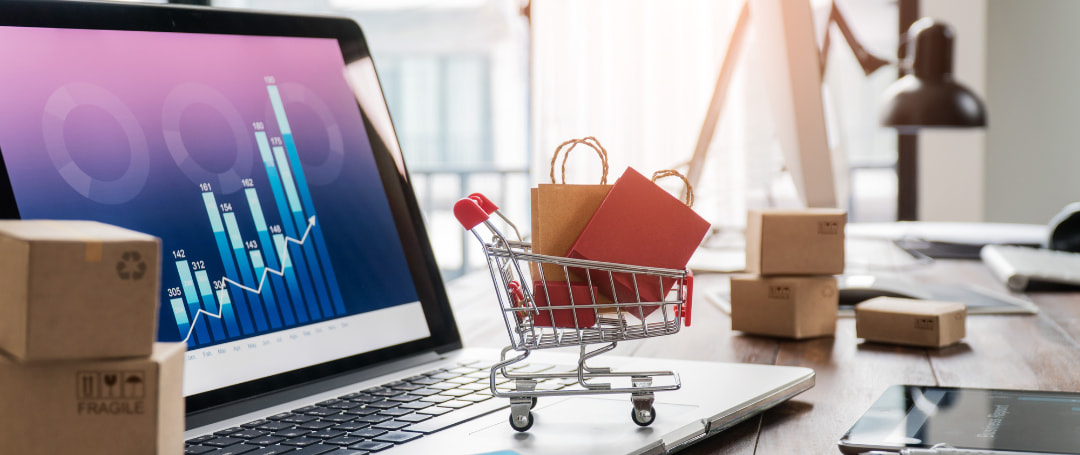
For retailers and businesses selling their products and services online, costs can be very high. Enterprises looking to boost their online presence and sales, particularly in an economically uncertain climate, will look to utilise as many affordable digital marketing techniques as possible.
With money-conscious businesses and consumers alike, there has rarely been a better time to allay traditional advertising and invest in sustainable, affordable marketing tactics to help convert your audience and generate leads and revenue.
Retailers, shopkeepers and online traders will only be too aware of the challenges many are currently facing, and investing in free or affordable methods can help retailers increase their profits.
It’s crucial for retailers to select the right e-commerce platform and build the right website for its requirements, as there are so many different engines available.
What is Digital Marketing?
Although digital marketing may sound alienating or challenging for traditional retailers, there is an array quick and easy methods to boost retail performance. Digital marketing can be used to help your audience particularly interested in your products or service find you online.
When compared with traditional advertising, digital marketing is far better when it comes to creating product listings for your customers to find. Moreover, with so many software tools available, retailers can track and measure their online performance for dynamic analysis to adjust and improve.
SEO
SEO, which stands for search engine optimisation, is an essential element of digital marketing. SEO involves optimising your website to improve visibility for search engines to help your customers discover your business organically.
As opposed to traditional advertising, SEO can be inexpensive, or even free!
There is a wide and far-reaching range of SEO methods and techniques for improving online performance. Generating engaging, valuable and citeable content is considered one of the most important SEO ranking factors. Retail marketers can research the popularity of their keywords, generate content for them and embed targeted terms in their webpages, headings and meta information.
SEO also includes boosting your website’s authority and reputation by attaining contextual external links from directories and high-ranking sources.
Technical SEO refers to a series of tweaks and changes that allows search engine spiders to crawl and index webpages more effectively. This includes optimising crawl rate and ensuring search engines are visiting the pages retailers want to rank more often. Technical SEO is a particularly important aspect for SEO for retailers and e-commerce stores, as they often contain a greater number of URLs with categories and product pages.
Social Media
Social media is a powerful medium for retail which has revolutionised how people interact online, consume content and how advertisements are tailored to users. Social media, which is almost universally free to join, refers to an array of popular platforms including Facebook, Instagram, Twitter and TikTok which retailers can use to market their product and target their audience.
Using social media, customers can often discover retailers algorithmically, and can use social media channels to contact retailers directly also. An invaluable medium for building brand awareness, retailers can target customers specifically by their interests and behaviour, which can increase conversion rates and drive sales.
By posting regularly, or using in-built advertising tools, social media can be used to maximise your reach as a retailer, whilst selling a lifestyle to its users.
Email Campaigns
Email marketing allows retailers to connect with customers directly, reaching their mailbox to send specific products or services. These targeted emails allow retailers to segment their data sets to maximise conversion rates. Email marketing invariably shows a high return on investment.
Personalisation also allows retailers to customise their marketing based on customer information, including their name, purchase history and other attributes. This helps retailers maximise their engagement by providing content, products and services which particular customers are genuinely interested in.
Emails can also be used to deliver automated communications to retail customers. Automated emails and customer flows allow retailers to deliver vast quantities of emails automatically, ensuring maximum and consistent coverage. Popular email flows include abandoned carts, cross-sells and improving customer engagement and retention.
Although email composition and automation tools are rarely free, they are relatively affordable when compared with traditional advertising costs.
Google My Business
Google My Business (GMB) is a free tool which allows retailers to manage their online presence on Google Search and Maps. Allowing retailers to show accurate, update information, GMB is particularly effective for local shops and traders whose audience is geographically close.
GMB also allows retailers to illustrate customer satisfaction and gain trust by receiving reviews and responding to customer claims and queries.
Loyalty Programmes & Discounts
Customer loyalty programmes encourage customer retention as shopper’s loyalty is rewarded. This encourages repeat businesses and boosts customer engagement as customers are more likely to remain up-to-date with your latest promotions and sales.
An introductory sales offers and discounts can be effective when encouraging customers to place their first order. This conversion can be key in terms of retailers making a lasting impression on its audience, and can help retailers become a trusted solution for consumers.
Loyalty programmes are also an effective way of attaining customer data, which can be used for automated customer flows and targeting campaigns, so long as users have consented.

